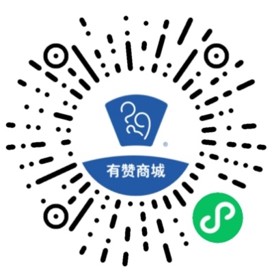
Drug Allergies in Children
Immediately after birth, a baby’s internal organs are underdeveloped. Babies have weak immune systems and are highly vulnerable to disease. Many parents who administer medicines at home are naturally worried about whether their children have drug allergies. What are common symptoms of drug allergies? Which drugs are likely to cause allergic reactions in children? This article will discuss drug allergy symptoms, usage of anti-allergy medications and general concerns about taking medications during pregnancy and breastfeeding.
Drug allergy symptoms and treatment
Medications that often trigger allergic reactions in children fit into two major categories:
- antibiotics – including penicillin, cephalosporin and sulfonamide
- macromolecular products – including vaccines and serum products, such as the Japanese Encephalitis Vaccine and Tetanus Antitoxin
If the child has other allergies or a family history of allergies, certain pharmaceutical ingredients (e.g., peanut oil, gluten, etc.) or preservatives may also trigger an allergic reaction. For example, if the child is allergic to eggs, the chicken embryo culture influenza vaccine should be administered with caution.
How do I determine whether my child has drug allergies? Do drug allergy symptoms vary? Drug allergies are the immune system’s way of fighting perceived threats from medications. Drug-induced reactions are divided into two types. Different drugs elicit different reactions, leading to different clinical symptoms.
1.Immediate reactions: This first type of reaction occurs immediately (between several seconds and one hour) after receiving the drug. For example, immediately after an injection of penicillin, the patient may experience tightness in the chest, palpitations, shortness of breath, paleness, sweating, coldness in hands and feet, and even shock. These immediate reactions tend to be severe, and a quick response will be necessary to prevent serious harm or mortality.
2.Delayed reactions: This type of reaction involves rash-like symptoms that occur a few days (usually more than 72 hours) after treatment. Delayed reactions tend to be relatively mild and only affect the skin or a certain organ.
If you suspect that your child may have a drug allergy, discontinue use of the drugs immediately, but do not discard them. Take the suspected trigger drugs to the child’s doctor for evaluation.
During an allergic reaction, respond to your child as the symptoms warrant. For symptoms that seem to affect the whole body or respiratory system, lay your child on his/her back, release any buttons or tight fastenings, turn your child’s head to the side, clear the mouth and nose to keep the airway open, and take your child to the hospital as soon as possible. For localized reactions (e.g., a spot rash), give the child plenty of fluids to encourage the drugs to pass out of the child quickly. You could also give your child chlorpheniramine or loratadine. Observe any changes in the child’s condition, and make an appointment with the child’s doctor as soon as possible.
Anti-allergy medications
Antihistamines are commonly used to treat allergies. They are divided into first-generation and second-generation antihistamines. First-generation antihistamines include diphenhydramine, chlorpheniramine, phenergan and cyproheptadine. These medications suppress allergy symptoms and relieve itching, but this suppression comes with the side effects of sleepiness, fatigue, inability to focus, and dry mouth. Developed to eliminate these side effects, second-generation antihistamines do not pass as easily through the blood-brain barrier, so there is no suppression occurring in the central nervous system. Commonly used second-generation antihistamines include loratadine and cetirizine. These drugs usually have a long-lasting effect and can be taken once a day.
All drugs have the potential to trigger an allergic reaction. Anti-allergy medications are no exception. If an allergy is triggered by an anti-allergy medication, use of that medication should be discontinued immediately. Perhaps another anti-allergy medication could be tried.
Medications during pregnancy and breastfeeding
Pregnant mothers should only take medication under the guidance of a doctor or pharmacist. Drug allergies and reactions vary with body type and genetic factors. One note for anxious new moms: taking anti-allergy medication during pregnancy will not cause the child to develop the same allergies. Breastfeeding mothers who need to take medications should opt for the safest possible varieties that do not pass into breast milk. Here are some guidelines:
- When possible, choose single-ingredient drugs over drugs with many ingredients.
- When possible, choose drugs that are fast-acting with short-term effectiveness as opposed to long-acting drugs.
- When possible, choose topical treatments over drugs you have to swallow.
Drugs that cause allergies stimulate a part of the immune system called the IgE antibodies. When the antibodies bind to the drug, an allergic reaction occurs. Because a baby’s immune system is very immature, it doesn’t yet produce IgE antibodies. Therefore, mothers who take anti-allergy medications can rest assured that breastfeeding will not cause your baby to develop allergies. One additional note: BJU strongly encourages mothers to breastfeed.
Adverse drug reactions are not necessarily drug allergies
Adverse drug reactions are unexpected reactions that occur under normal usage and consumption of medicines that are unrelated to the medicine’s intended purpose. These reactions are mostly related to the pharmacological effects of the drugs and can usually be predicted from clinical trial results. In contrast, drug allergies are allergies. With allergies, the immune system is always involved in the reaction, which is often unexpected and unpredictable. Many times, parents see their children experience adverse reactions after vaccination – such as fever, swelling at the injection site and discomfort – and automatically conclude their child has a drug allergy. They then decide to discontinue the vaccinations. This is an incorrect interpretation of the event.





